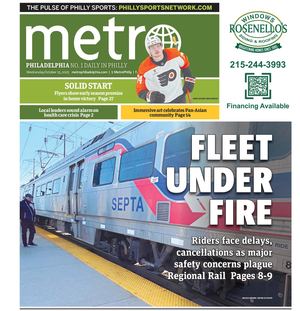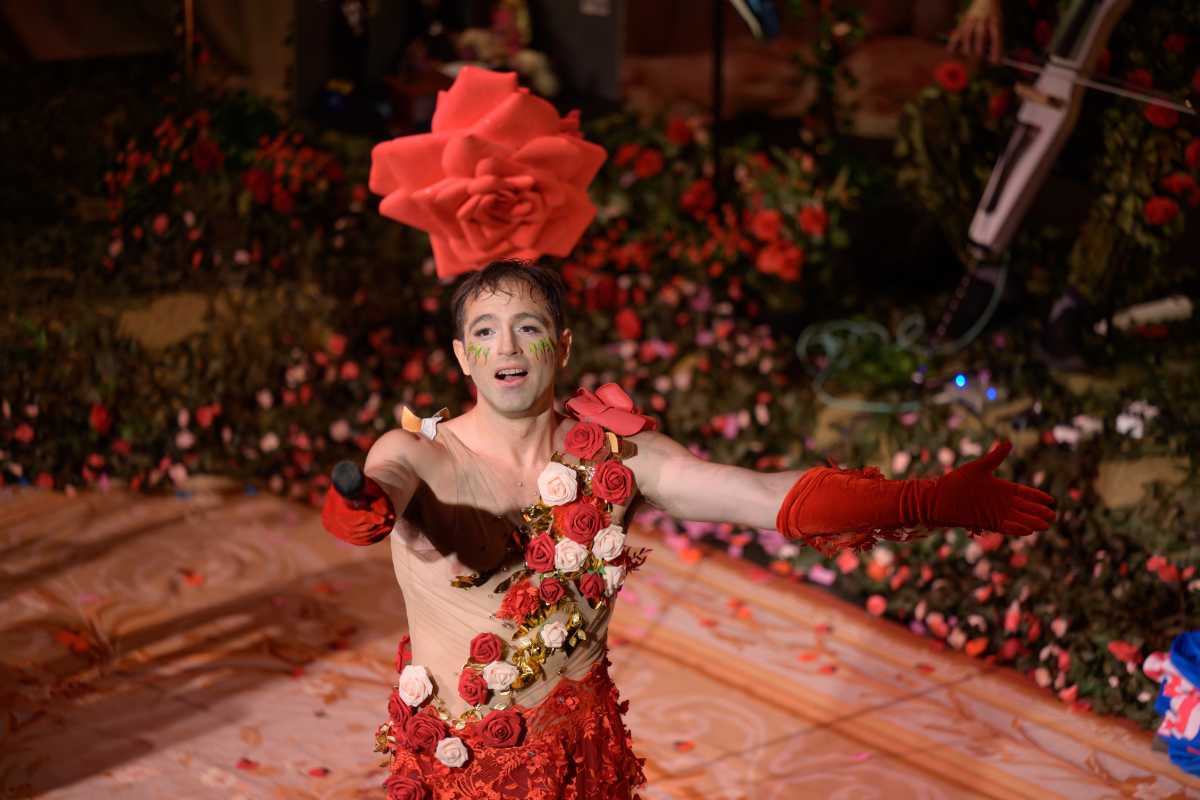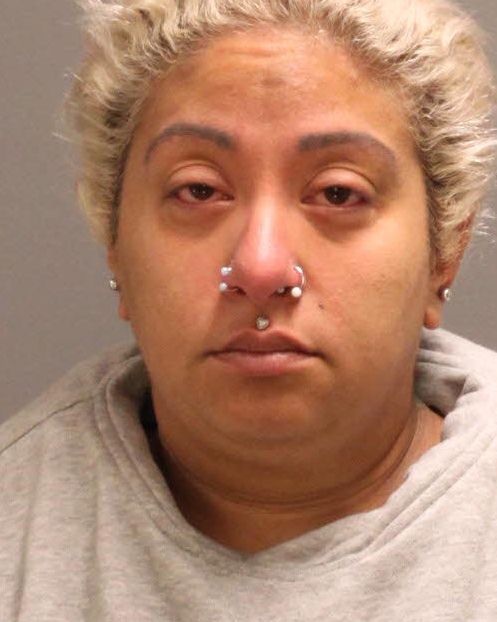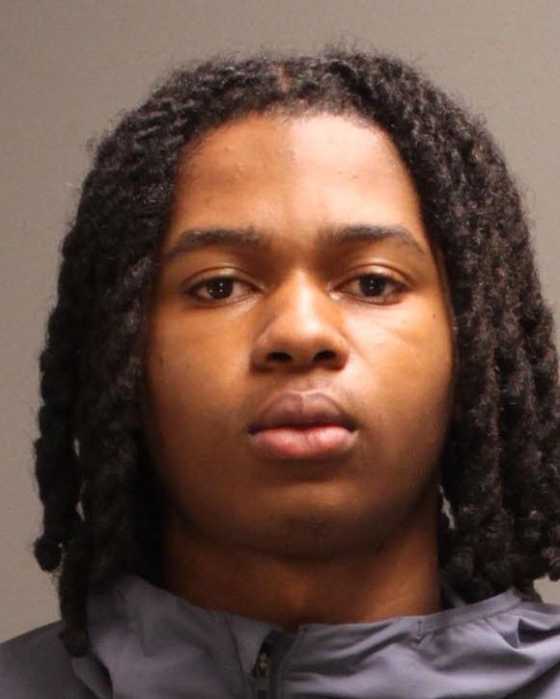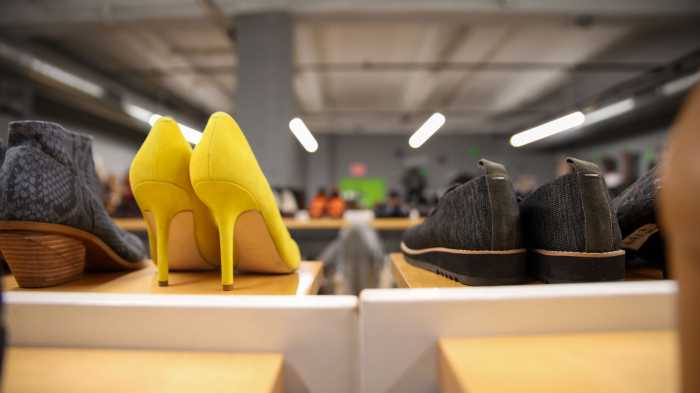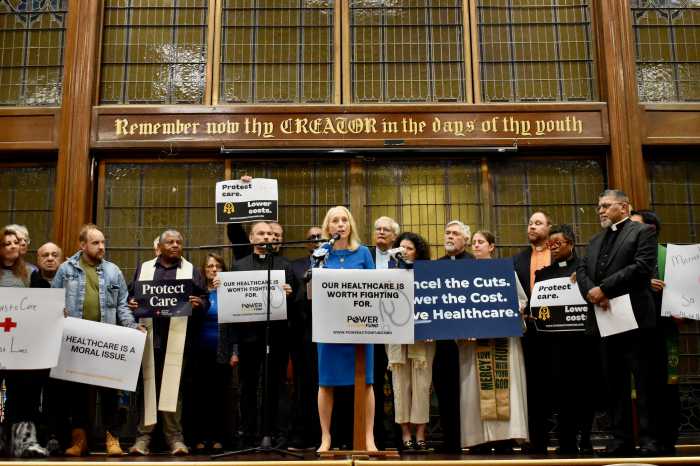Whether it has been through self-penned, performance pieces such as the musical healing ritual of ‘You Can Never Go Down the Drain,’ or the exploration of art and identity that was ‘ANDY: A POPERA’, in the past John Jarboe has created theater from a male perspective.
Jarboe’s latest work blooms in a different direction.
“The journey of my earlier works came from the idea of ‘What does it mean to be a man?’ and ‘How I fit into all that,” said Jarboe. “I didn’t really know who I was yet…. I was trying to define what it means to be a man, when, in reality, my struggle came from me not actually being a man…. Now, there’s enough heartache in the world that I’m not interested in making art from a perspective of personal trauma or obstacles.”
In 2023, Jarboe created the somewhat-autobiographical, “gender cannibal” original music fantasia, ‘Rose: You Are Who You Eat’, and now, ‘John Jarboe: The Rose Garden‘ – a cinematic, audio-visual installation at Philadelphia’s Fabric Workshop and Museum running from May 11 through Sept. 24.
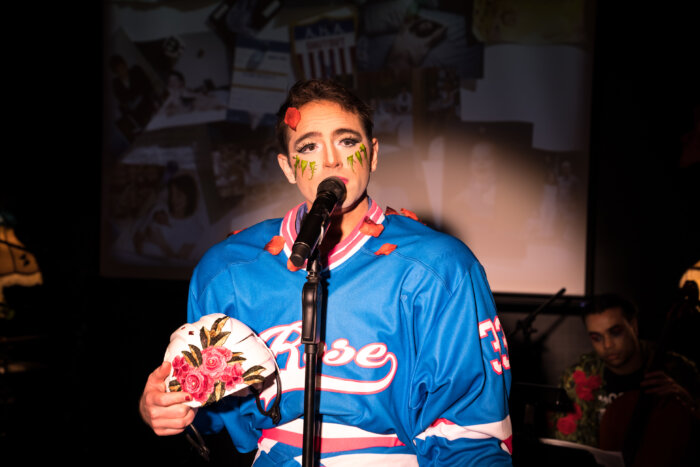
With ‘The Rose Garden‘, Jarboe further tests the complexities of trans identity and belonging based on a revelation learned from transitioning from “he” and “they” pronouns to “she” and “her” in 2018.
“That’s when my aunt told me how that made sense as, apparently, I had a twin who she said I ate in the womb. I didn’t know that I had a twin. My having eaten my twin is why I am the way that I am,” Jarboe told Metro. “As I say in the show, that was a lot to digest.”
‘Rose’, the performance piece, was the first time that Jarboe fully expressed herself in song beyond writing librettos, and now, in collaboration with queer and trans composers. “This is a musical healing ritual that I’ve made for gender cannibals, trans folk, queer-dos and their guardians. ‘Rose’ is for anyone dealing with self-acceptance and what it means to bring someone different into this world, and care for an nourish them.”
While Jarboe admits that the metaphorical performance of ‘Rose’ starts from a place of dark humor and cutting puns regarding the absorption of a twin and vanishing twin syndrome (“a lot of jokes about being hard to swallow, hard to stomach”), this original musical dramedy touches on the poignancy of how her lost twin is “eating me from the inside-out now,” she said. “I feel as if a shell, an armor, is being devoured, and I’m and revealing a soft underbelly, a femme human being that was there all along.”
Going forward as an artist and theater creator, Jarboe believes that she has stripped herself of the hard shell that long contained her — “drag is definitely an armor we wear, and I’m wearing less drag in ‘Rose’” — and embracing vulnerability and the feminine divine.
“I’m also angry at what happens to the trans community in America,” said Jarboe. “I’m into being dangerous.”
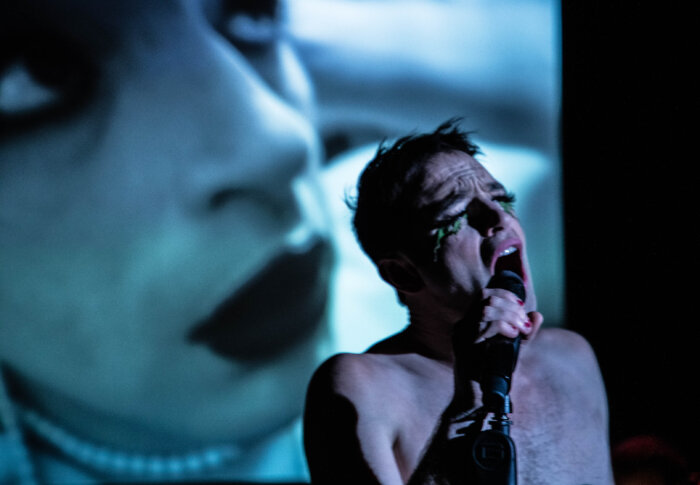
‘Rose: You Are Who You Eat’, made in partnership with the Bearded Ladies Cabaret, started at the 2023 Philadelphia Fringe Festival, moved into January 2024 performances with La MaMa in New York, and will be staged this summer in Washington, D.C. with the Woolly Mammoth Theatre Company (June 5–23) and via a mobile art gallery with Cultural D.C. (May 17–July 14).
Then, there is The Fabric Workshop’s upcoming The Rose Garden installation, which promises to match the energy of her stage performance with the format of a museum exhibition with eight rooms featuring video sculptures – a series of short films with original songs – and additional places at the FWM filled with Jarboe’s family memories, stories, and tchotchkes.
“The written material of ‘Rose’ was originally intended to be a video piece,” Jarboe explains. “When I was commissioned by Works in Progress at the Guggenheim in 2020, they wanted a film project because it was during the pandemic.”
From there, Jarboe made a music video based on compositions about all-things-Rose, co-written with songwriter Emily Bates, and continued forward with additional films and music.
“The ‘Rose’ show came to fruition due to those films, while I was also talking to museums, how all these beautiful gallery films should be in a museum.”
Philadelphia’s Fabric Workshop applied for a Pew Grant on Jarboe’s behalf, and voila: The Rose Garden became a reality.
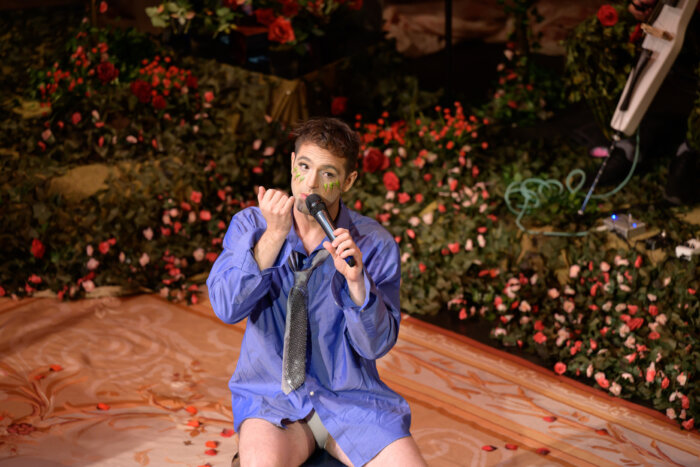
“I’m crafty, but not that crafty, and thankfully am able to exist in collaboration with The Fabric Workshop,” she said. “What they’re building in concert with me are environments to walk through – something that’s very interactive, like an escape room, or maybe an escape womb, of gender and Midwestern denial.”
Nearly 90 minutes of new Jarboe film fuels the installations of The Rose Garden, rooms where you not only activate the films at your whim, but pour through drawers and cabinets filled with the performer’s whimsy and memories. “I wanted people to feel as if they’re on a gender journey and doing the things that I had to do as a child.”
While rooting through Jarboe’s mother’s vanity, looking through magazines and make-up, you can look at videos made in tandem with directors Christopher Ash and MK Tuonamen throughout the installations’ eight separate spaces, all culminating in a Green Room hang space “designed to support queer folks, allies and advocates” with clothing and items donated by AIDS Thrift for a wardrobe swap, flowers from Market Blooms, and treats from Reading Terminal Market.
As the exhibit is up for months, and open throughout the day, Jarboe sees The Rose Garden as a “soft landing space for queer folk” to hang out, read and listen to music. There will also be poetry readings, happenings, virtual reality games and live music and theater at varying intervals throughout the Rose Garden exhibition.
“It is all very vulnerable,” said Jarboe when asked to comment on the most challenging ideations of Rose Garden. “The overall journey is the challenge. Acknowledging the things that feel nourishing to me in my idiosyncratic experience and expression of gender might just be triggering to others. There is a whole Alfred Hitchcock section where I play Anthony Perkins and Janet Leigh. There is hunting imagery and fish-gutting imagery because they were central to my childhood and have become metaphors for a journey of searching out who I am. That stuff is tender. I have to make sure that my journey ends in a warm, positive place.”
Among Jarboe’s video sculptures and mini-movies that fill The Rose Garden, nothing can be warmer than “Dear Mom,” Jarboe’s queer rendition of The Sound of Music’s “Do-Re-Mi” featuring a costume pattern that she helped design that, inevitably, becomes a sing-a-long healing ritual for trans folk. The video was filmed on location, during summer 2023, at Philadelphia’s Belmont Plateau.
“This becomes a beautiful, intergenerational expression of love and worthiness,” says Jarboe. “Worthiness is making sure that we, as queer people, can really know that we are worthy of love, and of the space that we take up – in galleries and museums and as part of this country.”
